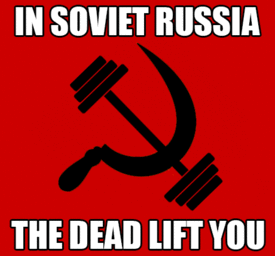How do you runners out there handle long run day calorie deficit

awestrick
Posts: 4 Member
I am training for a marathon and have one day of week that I will get up to running 24 miles. How should I handle the deficit since I'm not going to eat that many calories in a day. Just maintaining making sure I'm getting the right of everything.
0
Replies
-
You'll be surprised how easy it is to eat a good portion of those burnt calories. During the long run itself you'll probably be taking some gels or other form of fuel, you'll want to eat well straight afterwards to replenish lost stores and you'll probably find your appetite elevated for the rest of the day.
I know I also find my appetite is more elevated the day afterwards....it all balances out. In fact most people say they gain weight when marathon training.0 -
Not a runner, but I am and endurance rider. You may surprise yourself. I for one eat big the night before a long ride (usually some kind of pasta dish) and I carb up the morning of my ride with a bagel and some peanut butter.
Then I have my ride food...usually a Cliff Bar and an assortment of dried fruit...I also suck on Jolly Ranchers every 30-45 minutes or so and I drink coconut water.
Then when I get home I immediately make a recovery smoothie (even if I may not be particularly hungry at the moment) and my recipe for that clocks in around 800ish calories. It's my most important meal because without it I'm a sad sack of *kitten* the rest of the day...the quick carbs and protein give me the kick in the *kitten* to make it through the rest of the day.
Usually a couple of hours later I will finally be hungry for lunch and some solid food...one of my favorite go to meals here is a big fat juicy burger out on my grill and a big batch of my home fries...I'm also partial to a beer or two at this point. I usually eat a pretty big dinner on these days as well.0 -
I would always use it as a reward. Saturday's suck other than the guilt free beer and pizza! :-)
0 -
I gained 10-15 pounds training for my first marathon. It's fair to say calorie deficit wasn't a problem.0
-
I do weekly goals. Spread out the calories so you can both eat to fuel the run and eat to recover. Plus, it's easier on my body than eating 2000 calories one day and 4000 the next.0
-
You should defnitely fuel with gels or other carbs after 50 min or so. Also - maybe add 100 cal to a couple of other non run days to make your overall average closer to target and make sure you have the fuel to do the job.
good luck.0 -
I gained a few pounds during my marathon training. Honestly, unless you're well trained already I wouldn't suggest training for a marathon and trying to lose weight. Too much stress on the body. Even though I gained a few pounds, I felt better about my body in general.
Currently I'm sticking to shorter races so I can loss the last couple of pounds and still be motivated to put the miles/training in.0 -
Remember that aside from the endurance training you are also training yourself how to accomplish the feat and part of that is keeping yourself fueled during the workout.
Learn how to eat to keep your glycogen levels in your muscles and kidney topped up before a run. Research on your own for info how to determine this as it is beyond the scope of this post.
From what I have read you can digest 1gm of hour while working out, so eat 30 grams of carb per 1/2 hour when working out.
Find the fuel you like but don't be afraid to switch to something else if that doesn't agree with you. Once you find a fuel stick with it as you training your body to digest it during a workout and you don't want to find out out what happens with a new food your digestive system doesn't agree with during a race.
Above is for carbs, further research on your part can cover protein and fats.
Don't neglect hydration, before during and after.
To the crux of it is. Nailing your carbs, protein and fats to match the workout effort and then recover properly while keeping the deficit. It's not an easy task but it is doable. You will likely need to do some spreadsheets in addition to MFP to get dialed in.
As others have said, you may find it more to your liking to lose the fat and then train.
0 -
ThickMcRunFast wrote: »I do weekly goals. Spread out the calories so you can both eat to fuel the run and eat to recover. Plus, it's easier on my body than eating 2000 calories one day and 4000 the next.
I do exactly this. I still eat more on my more active days, but I am usually over on my rest/easy run days and under on my long runs days.0
This discussion has been closed.
Categories
- All Categories
- 1.4M Health, Wellness and Goals
- 398.1K Introduce Yourself
- 44.7K Getting Started
- 261K Health and Weight Loss
- 176.4K Food and Nutrition
- 47.7K Recipes
- 233K Fitness and Exercise
- 462 Sleep, Mindfulness and Overall Wellness
- 6.5K Goal: Maintaining Weight
- 8.7K Goal: Gaining Weight and Body Building
- 153.5K Motivation and Support
- 8.4K Challenges
- 1.4K Debate Club
- 96.5K Chit-Chat
- 2.6K Fun and Games
- 4.8K MyFitnessPal Information
- 12 News and Announcements
- 21 MyFitnessPal Academy
- 1.5K Feature Suggestions and Ideas
- 3.2K MyFitnessPal Tech Support Questions








